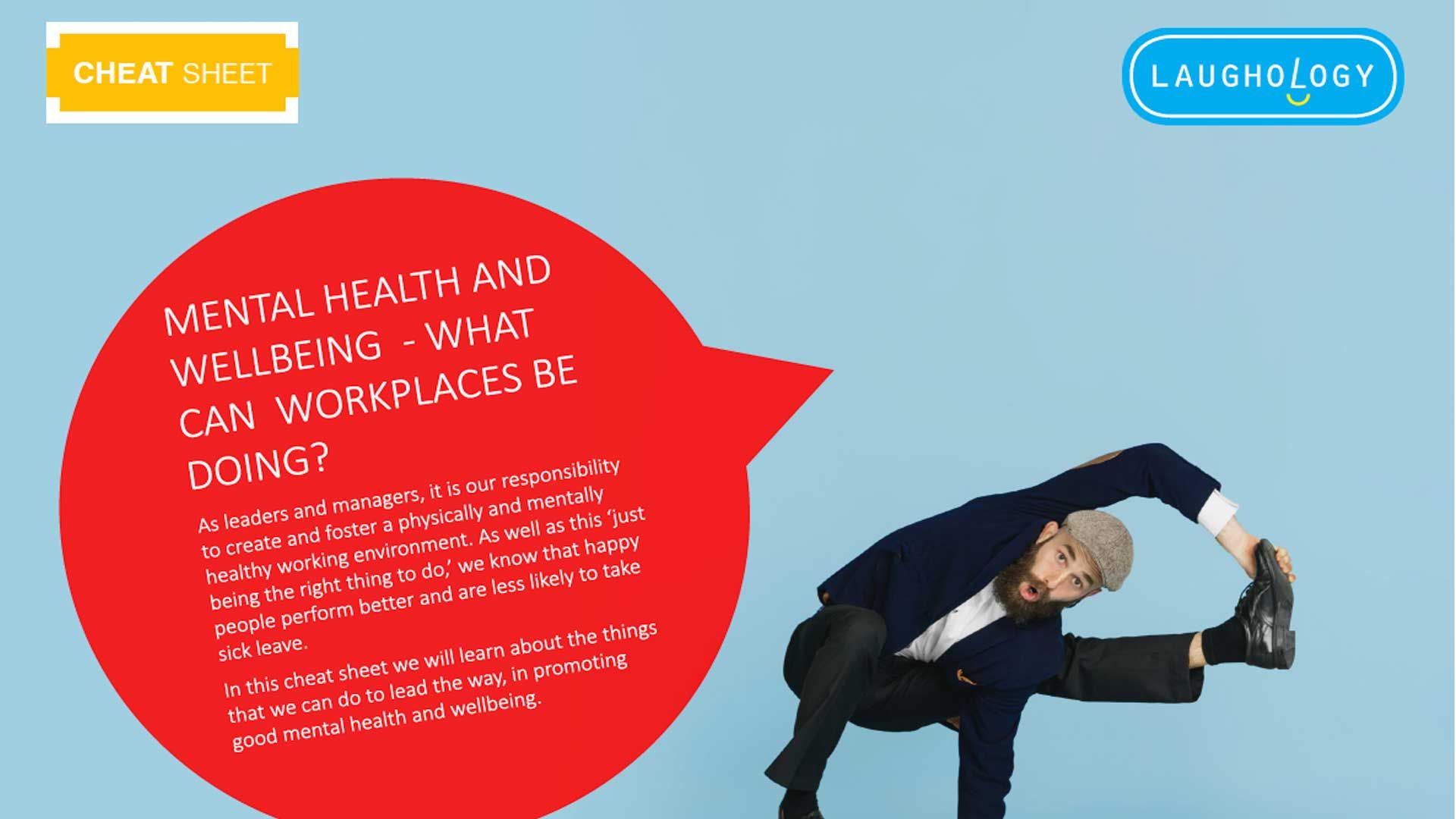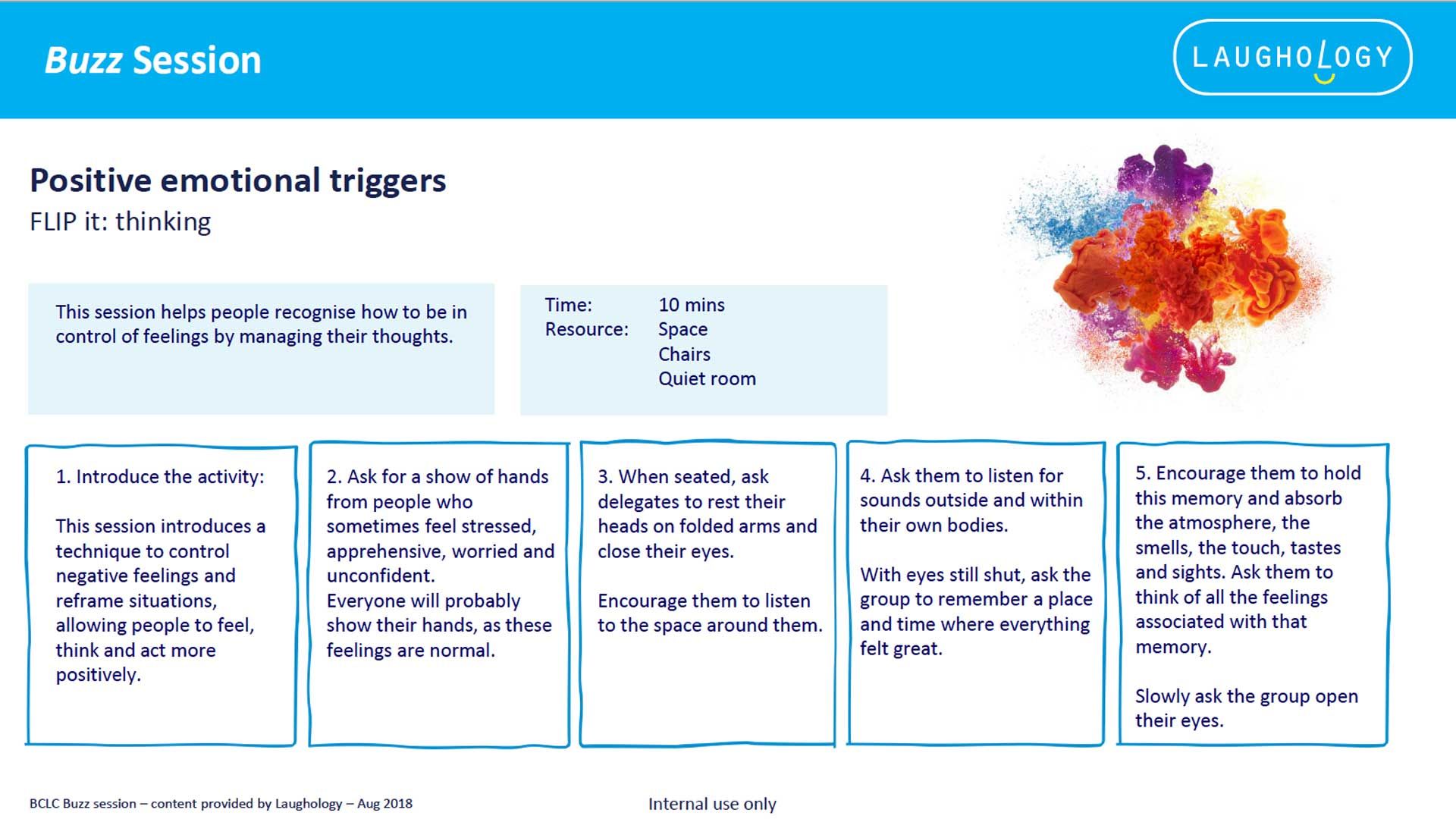Mind the Gap. Returning to work and mental health after Covid-19
Module 1 - What Workplaces Can Do
Watch
How are you?
Supporting Mental Health in the Workplace

Find out more about the Laughology Mind the Gap mental health virtual workshop ...
Read
Mental Health: - Supporting People Back to Work
Over the past months, we’ve witnessed one of the biggest crises the world has ever seen and there’s no doubt that it’s affected people’s mental health.
Some people are now returning to work and whilst this is good news, we must recognise that several will return to work experiencing new or existing mental health challenges. People will be leaving the safety of their homes and transitioning from lockdown to returning to work, which may bring varying levels of anxiety and stress.
“More than two-fifths of UK workers are anxious about the prospect of returning to the workplace following the coronavirus outbreak.”
(CIPD)
So, what can you do to make the transition back to work a little easier?
Communicate through regular conversations
Uncertainty makes anxiety far worse, so help people focus on things they can control. Communicate regular, clear updates so everyone’s kept in the loop, otherwise people will adopt the ‘crystal ball’ mindset and start creating their own (negative) updates - known here at Laughology as ‘wonky thoughts’.
It’s also crucial that you have regular catch ups about people’s overall wellbeing, listening to what’s being said, as well as what’s not being said. British people tend to say we’re fine when we’re not; we think it’s the polite thing to do.
So ask questions and listen to ensure that they really are okay and reassure them of support if needed. We’re all unique and therefore it’s key that you adapt, showing flexibility in your approach - what works for one person may not work for another.
People need to feel psychologically safe to be motivated and productive.
Signpost people to where they can get help and support
If people have access to an employee’s assistant plan, make sure they’re aware of any mental health services available to them through this, and also inform them of any other tools and resources available to support them.
Have a WRAP
Here at Laughology, we have developed a Work Ready Action Plan (WRAP) that you can use to support you, your teams, and individuals when getting back to work.
A WRAP should cover the following:
- Approaches and behaviours people can adopt to support being back at work
- Support that’s needed from their manager or leader
- Actions and positive steps that they (and their manager) can take if they’re experiencing stress or poor mental health
- Agreed times to review the WRAP and any support measures that have been put
in place, to see if they are still working
- Anything else that would be useful in supporting people to get back to work in a safe and supportive way
- Checking any challenges that have arisen because of Covid-19, such as being a vulnerable person, looking after children or elderly relatives which means working patterns have changed.
A WRAP reminds us what we need to do to stay well and feel safe at work.
Role modelling
Lead from the front and share how you’re coping - what are you doing to look after your own well-being? Don’t be afraid to share your own struggles. If we’re going to reduce the stigma surrounding mental ill health and develop a culture of wellbeing and support, then we all need to start talking openly and honestly.
“The mental health crisis stemming from Covid-19 is serious and will be with us for some time to come. Let’s approach it with compassion, honesty, and openness. We will emerge from this as better leaders, better people, and better companies.”
(Harvard)

























